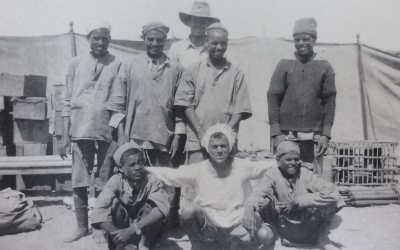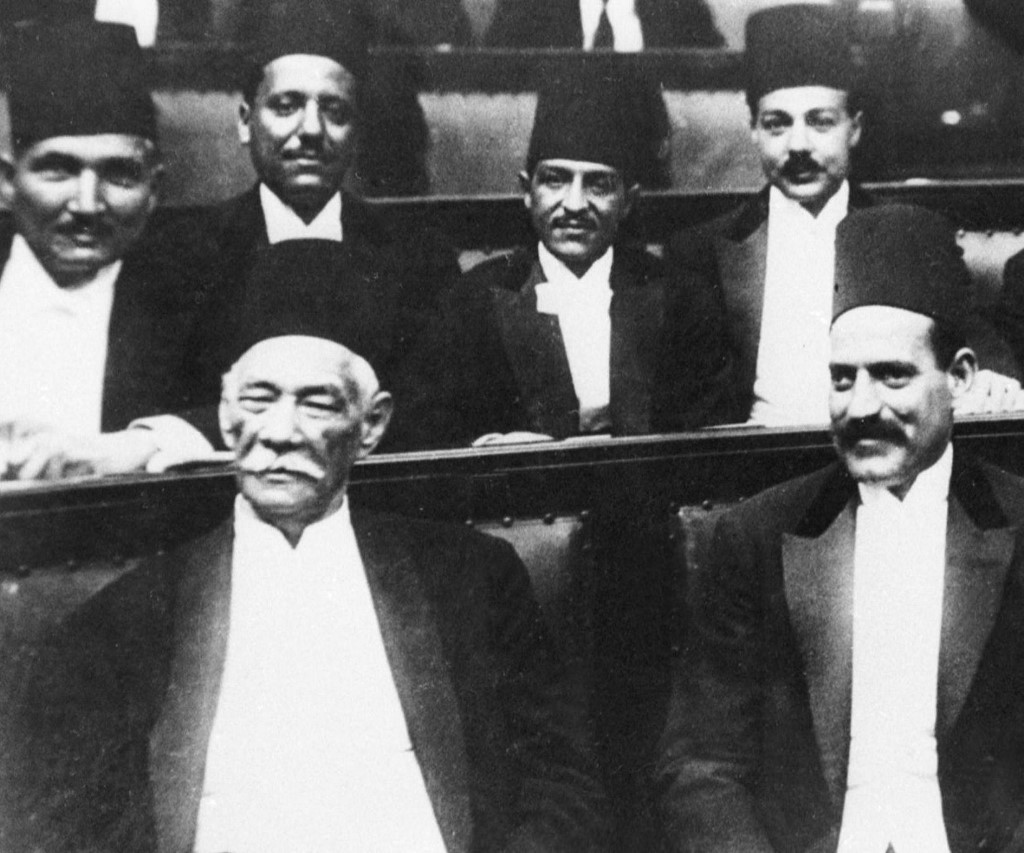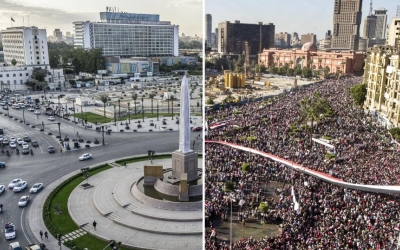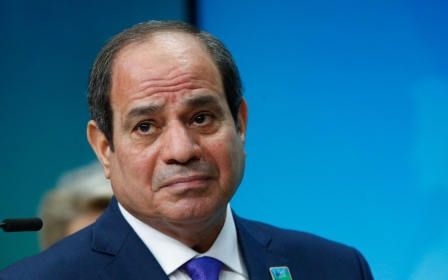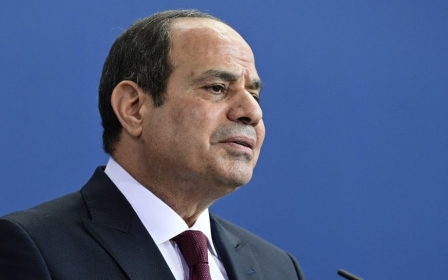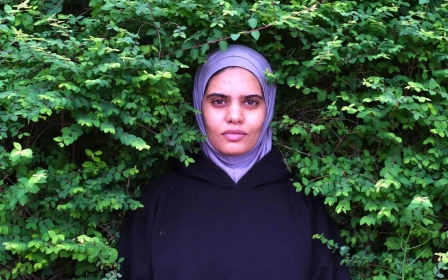Egypt and the British colonial origins of the military regime
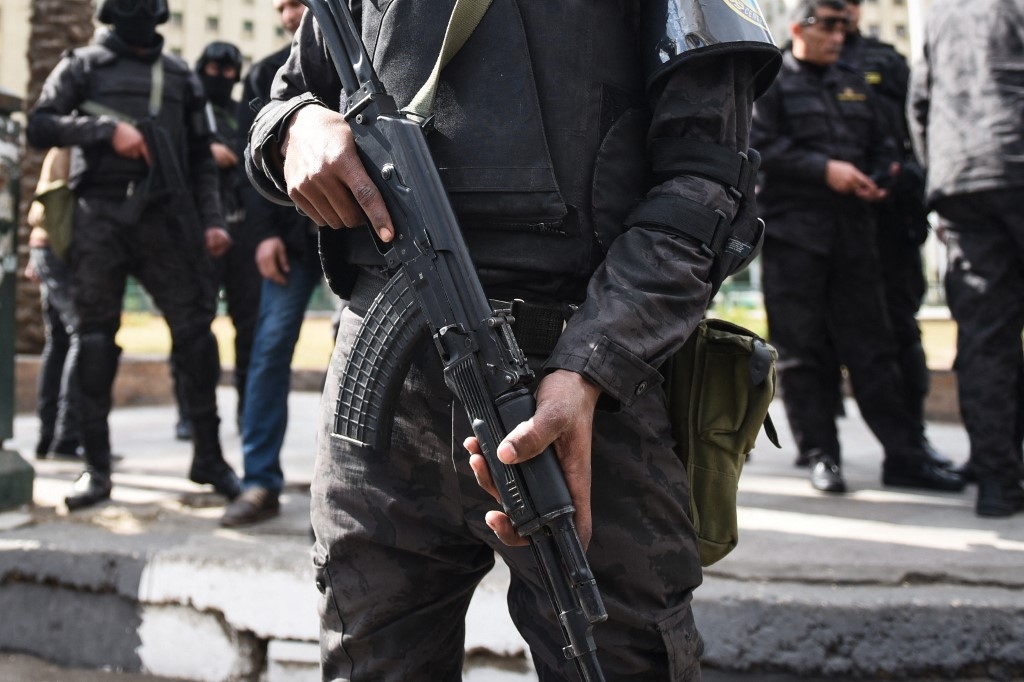
The impulse to compare the 1919 Egyptian revolution with the 2011 revolution of the “Arab Spring” has proven irresistible. Political scientists have drawn parallels between them in terms of the role of youth movements, the activation of social networks and the consolidation of new constitutions.
One thorough attempt is put forth by Robert Springborg in a new edited volume. He compares the military regime that clung to power through the turbulent events of 2011-2013 with the British colonial regime, which maintained its occupation but allowed space for lasting change in the wake of 1919. He concluded that colonial rule was a “softer target” than the military regime, “less violent and more conciliatory”.
Setting aside the actual violence perpetrated by the British army to suppress the rural rebellions in 1919, what most bothers me about this impulse to compare is how events around 1919 and 2011 are treated as distinct, sealed off from one another, and placed in juxtaposition.
In reality, the current military regime that governs Egypt has inherited and developed important technologies of counter-revolution and repression originally created by the British colonial state in response to radical forms of anti-colonial activism in the years surrounding 1919.
Since 2013, the tens of thousands of people that human rights groups estimate have been jailed in Egypt were largely apprehended by police from the National Security division of the Egyptian Ministry of Interior, incarcerated in the infamous Tora prison and tried in State Security courts.
It was the British colonial government that founded the first state security apparatus in Egypt in 1911. Similarly, it was a British doctor, Harry Crookshank, who converted the old military hospital at Tora - which sat at the base of a great limestone quarry - into a public works prison.
Attempts to compare the government of Egypt today with that of a century ago thus miss crucial ways that the latter set the stage for the former. Political sociologist Aly El Raggal has provided the best analysis of this historical relationship that I’ve read so far, but the story of the state security’s founding, and its crucial influence on the Egyptian underground, remains underexplored.
Assassinations
The state security apparatus has its roots in the British response to the assassination of Prime Minister Boutros Ghali in 1910. His assassin, Ibrahim al-Wardani, was the son of a deceased senior police officer in the provinces.
Wardani used his inheritance to fund his studies in Lausanne, Paris and London. While abroad, he mixed with anti-colonial radicals including Indian revolutionary Madan Lal Dhingra, and imbibed the spirit of the anarchist international.
Wardani travelled to Geneva, where he became acquainted with Egyptian nationalist leader, Muhammad Farid. When Wardani returned to Egypt in 1909, he joined Farid’s Nationalist Party and began pursuing politics as a career in earnest.
It was the first political assassination in modern Egyptian history, but it would not be the last
Wardani also joined the secret political society associated with the Nationalist Party, known as “The Society of Brothers’ Solidarity”. New members of the society were subjected to a thorough background check and only admitted after they had sworn on the Quran to help their fellow Muslims. Meetings were held every two weeks, and members also exercised together according to a strict regimen.
Wardani was the treasurer of the society, and also headed their paramilitary fida’i committee, which consisted of men who were willing to sacrifice their lives for the cause. Their membership roster was kept a secret, even from the society’s executive board.
A target for assassination was chosen: Boutros Ghali. Ghali was a long-serving employee in the colonial government who was, at that time, the prime minister. He stood accused of many traitorous acts, perhaps most importantly, his presiding over the extension of the British concession in the Suez Canal.
The deed took place in the early afternoon of 20 February 1910, while Ghali was climbing into his carriage after a visit to the Ministry of Justice. Wardani drew a revolver and shot him in the back six times. The sixth bullet punctured the prime minister’s liver and stomach, and he died the following morning. It was the first political assassination in modern Egyptian history, but it would not be the last.
State security apparatus
Wardani did not even try to escape capture after the shooting. He was caught by Ghali’s driver and the guards at the Ministry of Justice, and brought to the Cairo parquet for interrogation.
The murder investigation was carried out by three groups of police officers; one questioned Wardani and those known to be associated with him; a second examined his papers and those of his associates; and a third arrested and questioned the people mentioned in these documents.
Following the investigations, Wardani and eight others were put on trial. While investigators had discovered the existence of the Society for Brothers’ Solidarity, other members were acquitted because of the lack of a conspiracy law on the books in Egypt. Wardani himself was found guilty and executed on 28 June.
The British adviser to the Ministry of Interior then decided that a special secret service bureau was needed to collect information about the Egyptian secret societies. The police had already been used to break up anti-colonial protests, but they lacked a real detective force that could combat the anti-colonial underground.
The commandant of the Cairo police, George Harvey, was instructed to form an intelligence organisation within the police. Harvey was a military man who had taken part in the battles to subdue the ‘Urabi revolt and conquer the Mahdist state in Sudan. According to historian Eliezer Tauber, Harvey believed “force should be fought with more force”. His group targeted Egyptian youths involved in politics.
Authoritarian policing
Harvey brought in a police detective from Port Said named George Philippides to help him lead his secret intelligence service. A Christian from Syria, Phillipides cultivated a network of informers run by plainclothes police officers. They created a report on 26 existing secret societies in Egypt, but Tauber finds that they were often confused, construing changing names as separate organisations, and failing to grasp relationships between groups and subgroups.
Furthermore, a number of the new secret service’s practices created perverse incentives. Financial rewards meant that informers could offer reports with barely a hint of truth and collect large sums. Other informers played on officers’ overzealousness and fed them false information. Finally, the brutality of secret service interrogations became well known, and witnesses often claimed their confessions were obtained through torture.
The so-called “Shubra plot” is a perfect example of how these practices could impact an investigation. In July 1912, police received a report from a young man who claimed to be involved in a conspiracy. The investigation led to a stakeout in the Cairo suburb of Shubra, where three conspirators were overheard discussing plans to kill the new prime minister and the British consul-general.
One of the conspirators, Muhammad Abd al-Salam, was brought in by the secret service. After denying the charges against him for 22 days, he finally confessed. According to Malak Badrawi, “he broke down and wept, saying that the police had threatened his wife with horrible deeds”. The sources leave it up to us to surmise what these deeds could have been.
When the trial took place in August, Philippides’ testimony lasted for over an hour. The three conspirators were found guilty, and each sentenced to 15 years' imprisonment. The perceived “leader” of the conspiracy, Imam Wakid, served his time at Tora breaking stones.
Four years later, Philippides was found guilty of accepting bribes. According to Badrawi, “a reliable source mentioned that after Philippides was sentenced, he admitted that the case had been concocted by police”. Nevertheless, the three alleged conspirators from the Shubra plot served their full terms.
Infamous informer
The most infamous police informant of the era was Muhammad Nagib al-Hilbawi, a schoolmaster in Alexandria who was known to the secret intelligence service for his nationalist sympathies.
After Ghali’s assassination, the Cairo branch of the Society for Brothers’ Solidarity was disbanded, but the Alexandria branch continued its activities. It was mainly involved in assisting the Sanussi state in Libya in its war against the Italians.
When an old leader of the Cairo branch returned from self-imposed exile in 1914, he resumed interest in assassination as a political tactic, and integrated with the Alexandrian committee.
Hilbawi’s accomplice was half-starved and kept in a dark cell with only a dirty mat to lie on
The target was Husayn Kamil, the new sultan of Egypt, who had controversially accepted the title when the British formally declared martial law at the beginning of the First World War. The 24-year-old Hilbawi was selected to carry out the killing.
An apartment was rented above the main road on the way to the sultan’s palace at Ras al-Tin. On 9 July 1915, as the sultan was headed out to Friday prayer, Hilbawi lit the fuse of the bomb with a cigarette he was smoking as he sat perched on a windowsill.
The cigarette failed to ignite the fuse, and when Hilbawi threw the bomb, it did not explode. He ran off, jumping from roof to roof across the houses nearby. A policeman picked the bomb up later, thinking it was a child’s ball, but noticed it had a smouldering fuse.
Police began questioning the crowd. Several witnesses had noticed a man throw something from the upper story of a certain building. Officers went up to the apartment and found it deserted, with cigarettes still lightly emitting smoke from the ashtray, and one window partially overlooking the street of the sultan’s procession.
A reward of 500 pounds was offered for information leading to the arrest of the perpetrators. By the end of August, nine people had been detained by police, seven of whom appeared before a special military tribunal convened under martial law. Only Hilbawi and one other, the young man who had rented the apartment, were charged.
State’s witness
Police treated the detainees terribly. Hilbawi’s accomplice was half-starved and kept in a dark cell with only a dirty mat to lie on. He was given one pail containing brackish water for drinking, and a dirtier pail for going to the bathroom. He said he once went for 32 hours without food.
Another one of the accused, Mahmud ‘Inayat, had fallen ill during his time in jail. While he was ultimately released, he died from his illness.
Hilbawi initially faced his imprisonment with steadfastness. Yet after a while, when no one from the Society for Brothers’ Solidarity came to visit him in jail, he became bitter.
When he was released in February 1924, after almost 10 years of cutting stone in the quarries of Tora, he was convinced by the new commandant of police, Thomas Russell, to turn state’s witness.
Hilbawi began hanging out in his old nationalist circles, and heard that his old colleague ‘Inayat’s younger brothers had become known for their assassination campaign during the heady days of the 1919 revolution.
The ‘Inayat brothers carried out the infamous assassination of Sir Lee Stack on 19 November 1924. When Hilbawi’s police handler told him about the attack, he rushed to the society’s headquarters and found the younger ‘Inayats discussing their exploits.
Soon, the ‘Inayats were arrested on information provided by Hilbawi, and investigations into their activities put the final nail in the coffin of the Society of Brothers’ Solidarity in 1926. Afterwards, there was a noticeable lull in political assassination attempts in Egypt.
Centralisation of police state
Investigation into the ‘Inayat’s campaign of assassinations after the 1919 revolution led to the reorganisation of the state security and intelligence apparatus.
Up until that point, each major city and town had its own police chiefs who were largely autonomous, with their own detectives and informants. In February 1920, a new special section was created within the Ministry of Interior that would centralise the collection and analysis of police intelligence throughout the country.
In February 1922, the British unilaterally declared Egypt independent, but “reserved” their right to protect the foreign communities in Egypt. British officials thus continued to run the secret intelligence service in the country. In 1925, after Stack’s assassination had highlighted the political police deficiencies, the Cairo police special intelligence service was closed, and files were transferred to the Ministry of Interior.
It was not until the 1936 Anglo-Egyptian treaty that the secret intelligence organisation within the Ministry of Interior was “Egyptianised”. But this only meant the substitution of British police chiefs with Egyptian men who had been brought up in the same system.
Without a full reform of the police state, tackling its authoritarian tendencies, decolonisation remains an unrealised dream in Egypt.
The views expressed in this article belong to the author and do not necessarily reflect the editorial policy of Middle East Eye.
Middle East Eye delivers independent and unrivalled coverage and analysis of the Middle East, North Africa and beyond. To learn more about republishing this content and the associated fees, please fill out this form. More about MEE can be found here.



